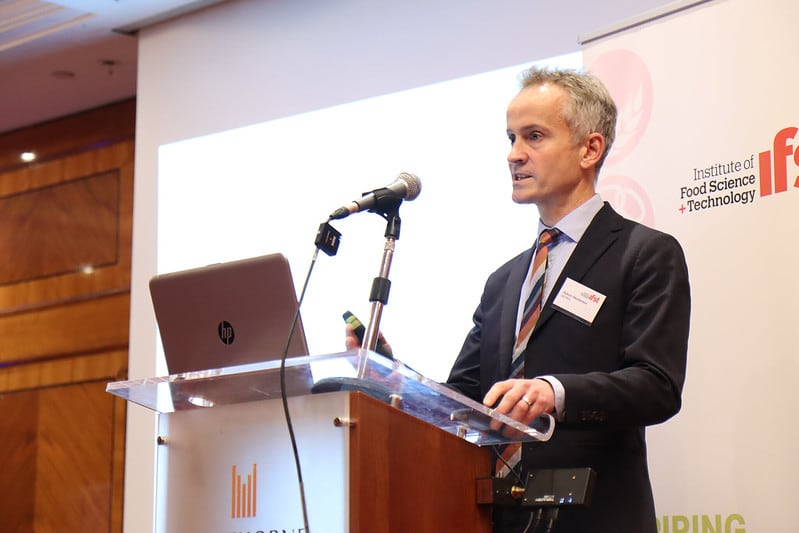In a lecture, Professor Gideon Henderson, Chief Scientific Advisor at DEFRA, explored the science and potential impact of net-zero in the context of food systems.
He recommended the following six strategies for the UK to work towards net-zero, which included: changing our protein intake (opting for proteins with lower greenhouse gas emissions), gene editing of crops (making them more resilient to climate change), vertical farming (to free up land used for more intensive farming methods), wetland agriculture (growing more diverse crops), consumer behavioural change and eliminating food waste.
On agriculture and vertical farming, he said: “If we want to rewet some of our peat and get off peatlands, or if we want to increase our amount of horticultural products, indoor farming is an exciting technology that is being pursued in many places already”. Henderson sees vertical farming as an opportunity to innovate while simultaneously reducing carbon emissions.
At the other end of the food system, Henderson discussed the need for a change in consumer behaviour by recommending the use of food labelling to inform consumers of the impact of the food products that they’re purchasing on carbon emissions, ultimately promoting foods that are “better” for the environment. “There’s also a challenge that lots of people don’t shop in-store, they shop online. They don’t see this stuff - it’s only when it turns up and it’s in their fridge do they see it.”
With the COP26 summit about to be hosted by the UK and the enormity of the challenges we face, there is no better time to consider the actions that will practically enable us to reach the goal of net-zero. With his role as Chief Scientific Advisor to Defra, Professor Henderson is at the centre of discussions on the science and technologies required to be adopted, plus associated areas such as biodiversity, new breeding technologies and the wider scope of food strategy.
On the importance of his topic, Professor Henderson remarked “Those (EU Exit and COVID) are both substantial challenges that are going to take years to play out but those challenges...are not as big or substantial as the challenge of driving down our emissions to net-zero. That is going to be a challenge that is more substantial and longer-lasting and will keep us busy for at least the next 30 years.”


